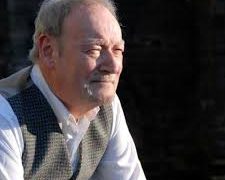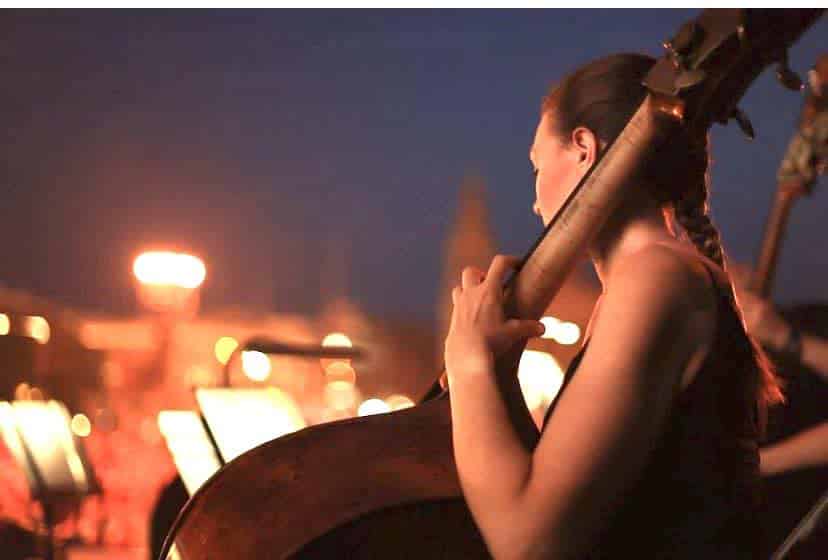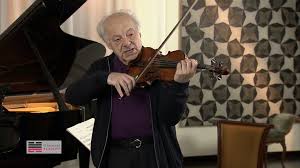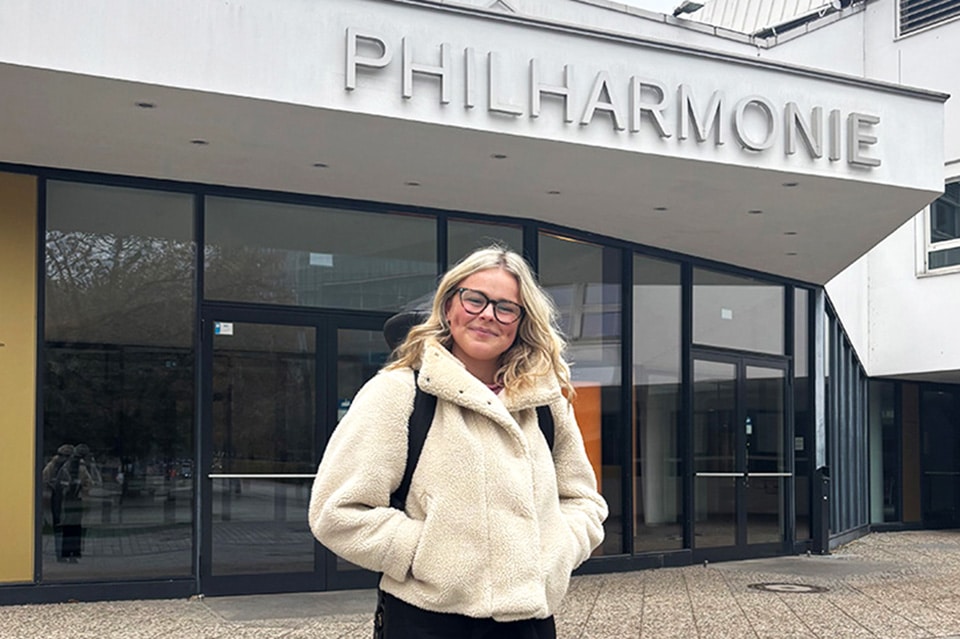Death of an eminent Scottish symphonist, 76
mainThe death is reported in a Glasgow hospital of John Maxwell Geddes, composer of three well-received symphonies and many other orchestral works, including several film scores.
He taught at the Royal Conservatoires in Glasgow and Copenhagen and was performed internationally.






James Scott Skinner far better, hear his Cradle Song.
https://www.youtube.com/watch?v=drM4STf1EiU
Classical music as we understand it effectively died out as an art form at the end of the nineteeth century, Brahms in his letters to Clara Schumann and the Herzogenbergs clearly felt he really was the Last of the Mohicans. What followed on was a gradual decline caused by two massive World wars which more than likely killed off anyone with talent and ability who could compose music one would want to listen to. Those composers left alive reacted to these events by going wrong note etc It is possible to construct a mathematical model to show this steep decline from 1900-1950 and then a further decline onwards from 1950 to 1999. What about our time from 2000 onwards, is it getting better, no it is not, composers now are academics with safe day jobs, they do not have to earn income from their music, which partly explains why it is so bad. As GB Shaw rightly remarked, those who can do, those who can’t teach. Schubert for example gave up his dull day job to compose full time, he got the odd tenner from his pals and earned very little from his songs etc. Had he not got infected with the Pox he would have easily made a living giving Schubertiads and chamber concerts filling the gap from 1830 to 1868 when Brahms and Bruckner arrived in Vienna. So his career never really took off as he died way too early.
A bad trend in the nineteeth century was over specialisation, some composers like Chopin only did piano music, some like Wolf just did songs, some like Bruckner did only Symphonies and some like Verdi and Wagner just operas, instead of composing a wide range like Brahms.
One aspect largely forgotten is that so called classical music evolved gradually from a mixture of sources, Court dance music, the church, theatre and folk music, the latter being very important in the baroque and Romantic eras. For example, Martin Luther used folk tunes in his chorales, Johann Heinrich Schmelzer and Heinrich Ignaz Franz v Biber both were influenced by folk fiddle music. Chopin and Liszt, and others in the nineteeth century were influenced by folk music as was the composer of symphonic cowpats Ralph Vaughan Williams. What came after was a complete break from reality, mainly due toa singular lack of talent and creative ability. It is contrary to popular belief rather difficult to compose an original melody and elaborate on it, the Pop industry has already ran into the problem of a lack of tunes, which explains why Pop now sounds all the same. Is there a way out of the boring tunnel, in the 21st century, not until they give up composing dirges and start composing stuff folk would willingly pay to listen to, which is unlikely. Hence we end up going to concerts to listen to old favourites , Bach, Beethoven, Brahms, Mozart, Handel, Haydn etc. Contemporary music is as popular as a rattle snake in a lucky dip, which is why audiences avoid it. Composers need to understand that life is too short to listen to wrong notes, we want a tune and if they cannot provide one we will just stick to our old favourites. I can see folk still listening to them for the next few centuries.
They certainly will not be buying CDs of John Borstlap! It would be interested to know what music if any will exist in 3000/4000 AD. At least “My lovely horse” will still be enjoyed for generations to come! https://www.youtube.com/watch?v=jzYzVMcgWhg
Here in Scotland, the country of the late John Maxwell Geddess, subject of Norman’s original post, we often have an enthusiastic paying audience for live contemporary classical music. In NE Scotland, we even have an annual area festival based around music by living composers (by no means all of them Scottish) http://sound-scotland.co.uk/ At the other end of the country, the Proms audience seems to have responded with enthusiasm to a number of new pieces in a wide range of contemporary styles.
… ‘other end of the UK’ would have been better than ‘other end of the country.’
Apart from the last ridiculous jest, there is a small grain of truth to this comment: classical music is not the exclusive territory of composers but a culture kept alive by three parties; composers, performers and audiences (academia is a mere bonus). But art music is not merely about ‘tunes’, it is about musical experiences and music consists of more than tunes. In the 1st half of the last century there was not a decline in terms of abilities: Debussy, Ravel (plenty of tunes), Scriabine, Strauss, Mahler (tunes all the time), Stravinsky (full of tunes), Prokofiev, Bartok, Rachmaninoff (tunes tunes tunes), Shostakovich, Britten…. and many of these used folk material as well. So, the idea that Brahms was the ‘last of classical composers’ is nonsensical if ‘classical’ means: truly gifted, tonal composers. Complaining about music should be based upon some knowledge about it, at least some minimum of acquaintance.
That symphony is an im- and expressive work, why is this music not more widely known, instead of – for instance – the hyped but flawed Ades? Probably because Geddes’ music has, under the colourful surface, traditionalistic dynamics. But these dynamics make the music truly ‘speak’.
I find it boring. Not like something by Crilly & Maguire!
https://www.youtube.com/watch?v=jzYzVMcgWhg
I think you would like James Scott Skinner better.
https://www.youtube.com/watch?v=drM4STf1EiU
That is (nice) folk music, not art music.
Folk music has a tune mate art music has none at all.
Try Gordon McPherson up yer alley?
https://www.youtube.com/watch?v=a7ACofKLEUM
You are obviously on the wrong website.
Hamish McCunn miles better.
https://www.youtube.com/watch?v=2-F5dmRV5Bc
That is music from before the invention of dissonance, easy on the ear, very musical, and because it is in the classical style it sounds more accessible. But it does not offer anything in terms of interest as compared with the Geddes symphony which has a great information density.
I hate all wrong noters so do audiences.
See the James Scott Skinner archive, Aberdeen. Now yer suppin’ Diesel.
https://www.abdn.ac.uk/scottskinner/other.shtml
Pompous idiot you have not written anything well known at all yourself.
You are on the wrong website – please, thy this one:
http://www.doityourself.com/
Agree with the above poster. Your music is substandard and you are a pompous idiot. I listened to your violin Concerto again and it still sounded crap.
Ìt’s for people with ears, and anyway: impossible to judge from mere short fragments. Please, try this – which seems better for you – enjoy!
https://www.youtube.com/watch?v=mbBOoZYHN4M
Thanks for marking his passing. He will be missed greatly by his fellow composers and the wider music profession.
Absolutely. Wonderful music and an engaging man.
I heard his music for the very first time in the City Halls in Glasgow in April conducted by James Macmillan and really regret not going to Ayr town hall the next day, Friday, to hear his Ayrshire Suite, coming as I do from that county. I was so impressed that the local council would commission it – very public spirited of a small Scottish seaside town. I did however listen to the radio broadcast. I did however listen to the radio broadcast
John taught me at school and if not for his genial musicality and ability to enthuse young people I would have had a much poorer cultural life. John was a great friend and I always enjoyed his company many years after he taught me. I have always thought that Scottish music has been neglected yet his magnificently written music captured the hearts of many music lovers the world over. He pioneered Scottish music in the Soviet Union ( apart from his own music, he taught students there and introduced other contemporary Scottish composers there) and his music is still heard and revered there many years after his first visit. I will always remember his wry humour and his affability. I think he would have enjoyed reading some of the comments written above. Rest in Peace John.